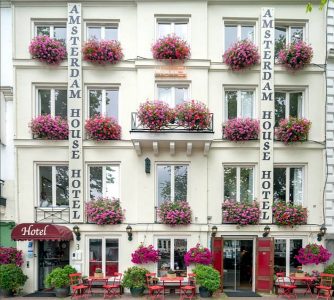Tuesday 29 September, Eyes on Animals met with the Ministry of Economic Affairs to discuss the law enforcement and supervision at the Dutch horse markets. We emphasized that we consider both the upholding of the animal welfare/transport law and adherence to the (voluntary) Protocol Horse Welfare Markets as insufficient.
Everyone transporting animals for with the purpose of an economic activity must comply with the European transport law EC No 1/2005. So this applies to everyone transporting their horse(s) to a market to be sold. On the dates of the 3 large Dutch markets, Elst, Zuidlaren and Hedel, the Dutch authority NVWA concentrates on large (often international) transport trucks. On the roads surrounding the markets, they intercept some trucks to check for compliance compliance with the legal requirements, and sometimes find transporters that avoided the official export certification unit at the markets.
However, Eyes on Animals finds it undesirable that in the Netherlands, there seems to be an agreement that the vast majority of sellers at the horse markets, small traders and private owners, are not checked for compliance with the transport requirements. All sellers should carry completed transport documents with them for their horses. Also, drivers bringing three or more horses to the markets should have a certificate of professional competence.
We have also expressed our concern about inadequate entrance inspections: health checks by (locally hired) vets are insufficient and no one registers ownership of the horse or checks the horse passports or chip numbers. EonA thinks these points are essential to establish a framework for law enforcement and better monitoring of animal welfare.
We also talked about the fact that the municipality Tynaarlo, which licenses and subsidizes the horse market Zuidlaren, recently was the first “horse market town” to draw up additional regulations for its market. This spring, Tynaarlo announced big ambitions to improve animal welfare, but unfortunately, in the final Regulation adopted in the Municipal Council, there was little left of these ambitions. Eyes on Animals would like to Dutch municipalities to be encouraged, as part of their CSR policy and ‘duty of care’ for animal, to impose stricter requirements before issuing a license for a horse market. Shortening the length of the markets is an important concern, seeing horses become extremely exhausted because they often have to spend up to 18 hours on the markets.
In addition, it should be made more difficult for traders to collect and transport horses from market to market nationally and internationally. There is insufficient government oversight of the role Dutch horse markets play in the international horse trade. Apart from risks for animal welfare, this brings along opportunities for food fraud and even risks to human health when these horses are slaughtered and end up in the food chain.
The Ministry of Economic Affairs has announced that it is taking our concerns seriously.

